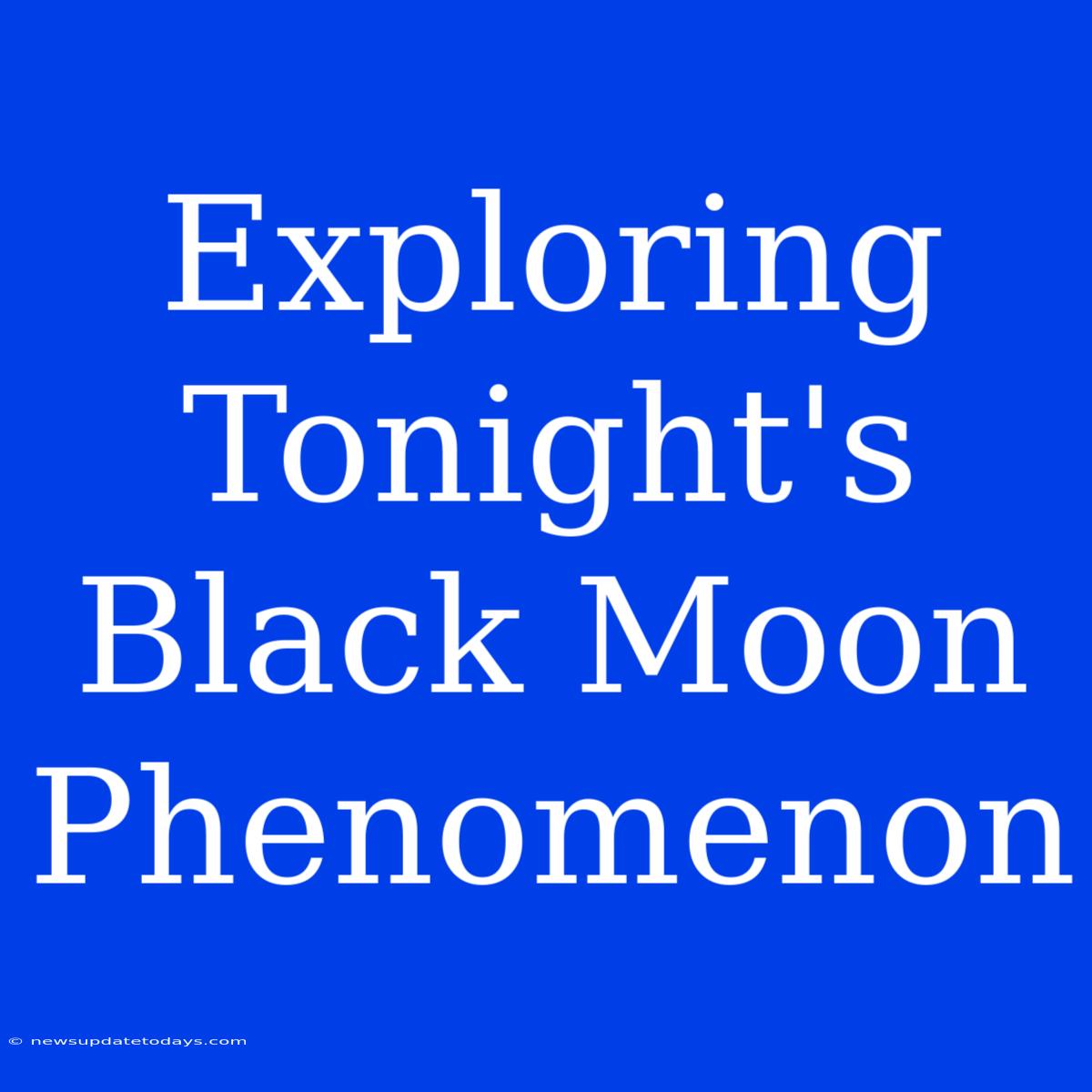Exploring Tonight's Black Moon Phenomenon: A Rare Celestial Event
Tonight, witness a rare celestial event: a Black Moon. But what exactly is a Black Moon, and why is it so intriguing? This article delves into the science behind this infrequent lunar occurrence, exploring its significance and debunking common myths.
What is a Black Moon?
Unlike a Blue Moon, which refers to the second full moon in a calendar month, a Black Moon is the second new moon in a single calendar month. New moons are notoriously difficult to observe, as they are not illuminated by the sun and are essentially invisible to the naked eye. This makes a Black Moon a particularly elusive celestial event.
This rarity is what fuels its mystique and fascination for astronomy enthusiasts and casual stargazers alike. The timing of the lunar cycle and the calendar month need to align perfectly for a Black Moon to occur, making it a relatively infrequent phenomenon.
Why are Black Moons so Rare?
The lunar cycle, from new moon to new moon, takes approximately 29.5 days. Because our calendar months are typically 30 or 31 days long, there's simply not enough time for two new moons to occur in most months. This is why Black Moons are relatively uncommon.
Debunking Black Moon Myths
Many myths and misconceptions surround Black Moons. Some people associate them with ominous events or supernatural occurrences. It's crucial to remember that scientifically, a Black Moon is simply a less visible phase of the moon, carrying no special astrological or meteorological significance. It's a natural occurrence in the lunar cycle.
How to "See" a Black Moon
While you can't visually observe a Black Moon in the same way you can a full moon, you can still appreciate its significance. Tonight, consider taking a moment to reflect on the quiet power of the unseen moon, a silent celestial partner in the Earth's dance around the sun. Use this opportunity to learn more about the lunar cycle and the science behind this fascinating event. The darkness itself is a reminder of the unseen forces at play in the universe.
Black Moons and Astrology
While scientifically, a Black Moon holds no special significance, some astrologers associate it with a time of introspection and new beginnings. They see it as an opportunity for reflection and setting intentions for the future.
Regardless of your beliefs, tonight's Black Moon presents a unique opportunity to connect with the cosmos and appreciate the intricate workings of the lunar cycle. It is a reminder of the mysteries and beauty that surround us in the night sky.
Conclusion: Embrace the Mystery
Tonight's Black Moon, while invisible to the naked eye, is a fascinating celestial event. By understanding its science and separating fact from fiction, we can appreciate its rarity and the beauty of the lunar cycle. Embrace the mystery of the unseen moon and take a moment to appreciate the wonders of the cosmos.

